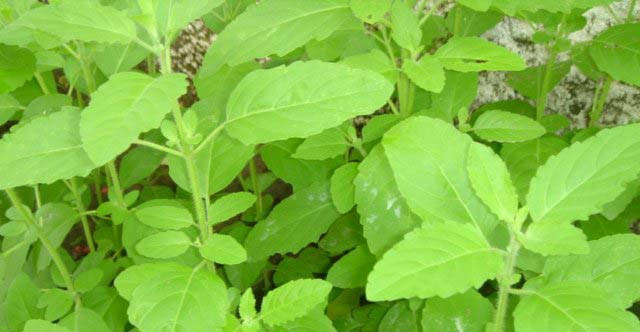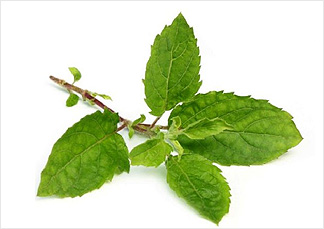Holy Basil
Holy Basil

Ocimum tenuiflorum, also known as Ocimum sanctum, holy basil, or tulsi, is an aromatic plant in the family Lamiaceae which is native to the Indian Subcontinent and widespread as a cultivated plant throughout the Southeast Asian tropics.
Tulsi is cultivated for religious and medicinal purposes, and for its essential oil. It is widely known across the Indian Subcontinent as a medicinal plant and an herbal tea, commonly used in Ayurveda.
In Ayurvedic medicine it is well known as an “adaptogen” to counter life’s stresses. It is considered a sacred plant by the Hindus and is often planted around Hindu shrines. The Hindu name Tulsi, means “the incomparable one.” Medicine is made from the leaves, stems, and seeds.
Holy basil is used for the common cold, influenza (“the flu”), H1N1 (swine) flu, diabetes, asthma, bronchitis, earache, headache, stomach upset, heart disease, chronic fatigue syndrome, indigestion, insomnia, fever, viral-hepatitis, stress, and adrenal fatigue. It is also used for mercury poisoning, to promote longevity, as a mosquito repellent, and to counteract snake and scorpion bites. Holy basil is applied to the skin for ringworm.
In cooking, holy basil is often added to stir-fry dishes and spicy soups because of its peppery taste.
The emerging science of epigenetics, a discipline investigated for a mere 2 decades, describes the ability of a cell to evolve as a function of direct experienced circumstance and not by virtue of actual changes in the DNA. Epigenetic inheritance systems play a role in what has become known as cell memory and cognition, and the real shocker is that these cellular changes are inheritable, hence allowing accelerated evolution of a given blood line and/or species! People can even use these herbs to evolve within their life time, minimizing inherited DNA and optimizing DNA that supports who they really are and want to be.
Thus the science of epigenetics was born, the science of showing how a person’s experience at the mental, physical, emotional and cellular level can change, alter, morph, and direct how the DNA of that person is passed on into the future!
Ayurvedic science shows that Tulsi, Ginger, Turmeric, Amalaki, Cinnamon and to some extent Ashwagandha are epigenetic herbs, and in the last decade, western science has confirmed Tulsi and Ginger can reach all the way into the chromatin of a cell’s nucleus and up-regulate the Histone H3, a key player in epigenetics.
HolyBasil: #My Tips

A few leaves dropped in drinking water or foods can purify it and can kill germs within it as well. Even smelling it or keeping it planted in a pot indoors can protect the whole family from infections, coughs, colds and other viral infections. Take 2-5 fresh (or dried leaves) of Tulsi and boil in 200 ml of water for 2-4 minutes and then let it cool down. Drink this every day to boost your immunity. You can also add a teaspoon on Manuka Honey and 2 drops of freshly squeezed lemon once it has cooled down.
